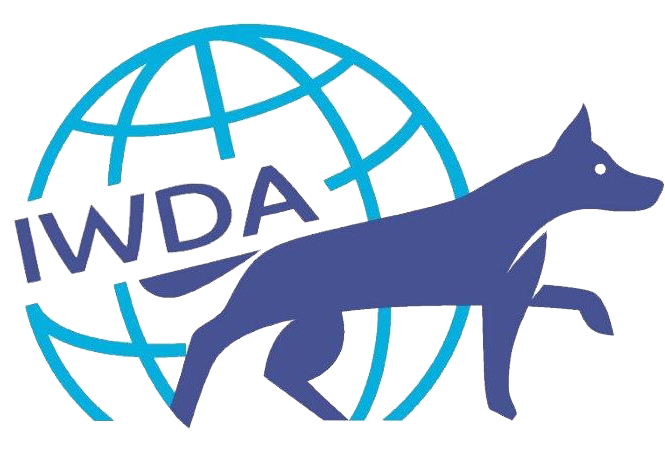By Jed Weisberger
So many working dogs and so many breeds often have their careers and lives cut short by cancer.
Dr, Katy Lytle, an IWDBA member and Director of Customer Support and Success Management at PetDX, a San Diego-based molecular diagnostics company dedicated to “unleashing the power of genomics to improve pet health,” has developed OncoK9, a “liquid biopsy” test to detect canine cancer well before it presents itself clinically.
Lytle IWDC 2021 talk in the subject was one of the most popular and interest-drawing of the entire conference.
“So many working dogs have both their working careers, and, in turn, their lives cut short by cancer we find at too late a stage,” said Lytle. “We feel we have something that can detect canine cancer in its very early stages.”
PetDX developed OncoK9, and, with its partners, ANTECH and IDEXX, has it available, in the mid-$400 range, for veterinarians to order. According to PetDX, the international, multi-center clinical study demonstrated that OncoK9® – The Liquid Biopsy Test for Dogs™ can detect 30 different types of cancer with a simple blood draw.
The Liquid Biopsy detests the modifications cancer does to cells and the resultant matter produced in an affected dog’s bloodstream long before the clinical evidence shows itself. As with human, if a working dog is afflicted with a Stage 1 cancer through a liquid biopsy, it, like humans, can be treated much more easily than if its cancer is discovered in Stage 4.
As Lytle pointed out in her IWDC 2021 abstract, “Cancer is the leading cause of mortality in dogs, and working dogs are no exception. A novel technology called liquid biopsy may offer an effective, non-invasive screening test for safe and early detection of cancer in working dogs, maximizing the chances of a favorable clinical outcome with the goal of extending the working dog’s life and career.”
Blood samples from an all-comers cohort of 191 cancer-diagnosed dogs and 188 presumably cancer-free dogs were subjected to DNA extraction, proprietary library preparation, and next-generation sequencing. Sequencing data were analyzed using an internally developed bioinformatics pipeline to detect genomic alterations associated with the presence of cancer.
The overall sensitivity in cancer-diagnosed subjects was 48% (92/191). Of 188 samples from presumably cancer-free dogs, 180 tested negative (putative ‘true negatives’) and 8 tested positive (‘putative false positives’, pFP). In at least 2 pFP cases, patients were diagnosed with cancer 6-7 months following blood collection and were excluded from final performance analyses, resulting in a minimum test specificity of 97%.
In addition, a novel, multi-cancer early detection (MCED) liquid biopsy test has demonstrated performance comparable to commercially available MCED testing options in humans. This test has shown the potential for detecting genomic markers of cancer months prior to the development of clinical signs. Early detection and treatment of cancer are key determinants of optimal clinical outcomes. When employed as a screening tool in the annual workup, a liquid biopsy test has the potential to extend the working dog’s career.
